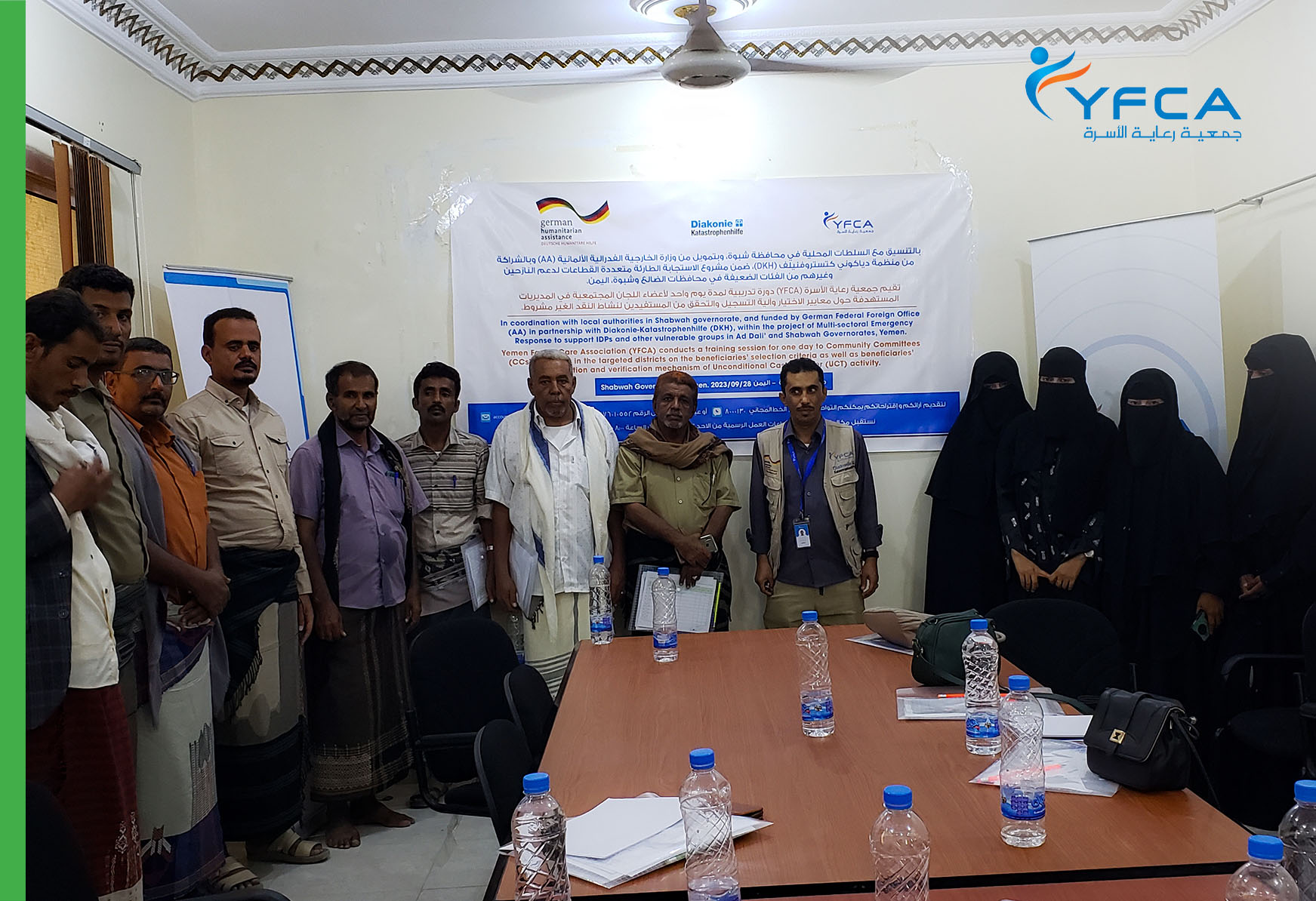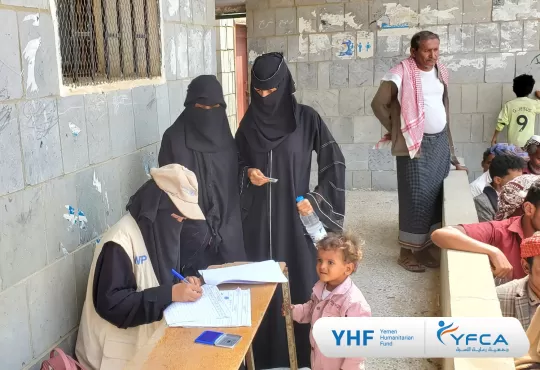Friday, 06 October, 2023
In a bid to enhance assistance to vulnerable populations in Yemen, YFCA conducted a comprehensive training session for 18 community committee members involved in the Unconditional Cash Transfer (UCT) activity in the Shabwah & Ad Dali’ governorates.
The training is a part of the Multi-sectoral Emergency Response project activities, which aim to support internally displaced persons (IDPs) and other vulnerable groups in Ad Dali’ and Shabwah Governorates,. The project is funded by the German Federal Foreign Ministry (AA) in partnership with Diakonie Katastrophenhilfe (DKH).
The committee members were trained on various topics, including the project’s objectives and activities, humanitarian standards, principles, and beneficiary selection criteria. They also learned about the mechanism for verifying beneficiaries, how to use the beneficiary selection form, and how the verification process ensures that beneficiary selection aligns with the criteria. The training included practical aspects of using the survey tool to collect selected beneficiaries’ information. At the end of the training, committee members received copies of the data collection tool.
With the newly acquired knowledge and skills, these community committee members are now better equipped to contribute to the selection of targeted assets and beneficiaries, further enhancing the project's impact on the ground.
The training is a part of the Multi-sectoral Emergency Response project activities, which aim to support internally displaced persons (IDPs) and other vulnerable groups in Ad Dali’ and Shabwah Governorates,. The project is funded by the German Federal Foreign Ministry (AA) in partnership with Diakonie Katastrophenhilfe (DKH).
The committee members were trained on various topics, including the project’s objectives and activities, humanitarian standards, principles, and beneficiary selection criteria. They also learned about the mechanism for verifying beneficiaries, how to use the beneficiary selection form, and how the verification process ensures that beneficiary selection aligns with the criteria. The training included practical aspects of using the survey tool to collect selected beneficiaries’ information. At the end of the training, committee members received copies of the data collection tool.
With the newly acquired knowledge and skills, these community committee members are now better equipped to contribute to the selection of targeted assets and beneficiaries, further enhancing the project's impact on the ground.






